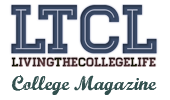What is the Difference Between Orthorexia and Anorexia?


Last week, xoJane published a story I wrote about my struggles with orthorexia. In the comments section, a few people mentioned that they couldn’t really tell what’s the difference between orthorexia and anorexia.
The disambiguation is totally understandable: Eating disorders are generally thought of in binary terms. Either you have bulimia or anorexia. That’s all there is to it…
In reality, that’s so very far from the truth. There are many different ways in which eating disorders can manifest themselves. Although orthorexia is not yet acknowledged by the authoritative Diagnostic and Statistical Manual of Mental Disorders, it is a serious condition characterized by extreme obsession with healthy eating and practices.
Although I am not any kind of medical professional, I have my own experiences with an eating disorder. Based on those, I know that orthorexia is a serious matter — with potentially deadly consequences.
For the most part, when I talk about my eating disorder, I just say that I was anorexic. Technically speaking, I think that is true… Just as a square is a rectangle, orthorexia is a form of anorexic behavior.
According to the National Eating Disorders Association, anorexia is characterized by self-inflicted starvation. By definition, orthorexia nervosa is a fixation on food quality and purity, which results in a gradually decreased list of “safe foods.” For me, that also meant fewer calories.
My food rules were my life. Even in the middle of important events, I wouldn’t let any food that didn’t meet my standards slide. In one case, I went out to IHOP with some friends for my birthday celebration. I only wanted one pancake and I wanted it to be whole-wheat. (White flour was a sin!) Only after twisting the waitress’ arm was I able to get a happy-face pancake to suit my request.
Another time, I was out to brunch with my family and a friend. The restaurant we were at was out of whole-wheat waffles and nothing else fit my criteria. I stubbornly sat through the meal as everyone else ate — I wouldn’t even accept a bite of eggs. Then they all went with me to another one of my pre-approved restaurants so that I could actually order.
I promise that I’m not usually such as brat. That’s just another unsavory side effect of the eating disorder.
Still, I didn’t think there was anything wrong with the way I was eating. Even though I was losing an excessive amount of weight, I remember telling a friend that I was “doing it the healthy way.” Most importantly to my personal attempts at justification, I was eating food — just as long as it fit my standards.
Sometime in the fall of 2009 I stumbled upon a quiz asking “Are You Orthorexic?” It was one of the first times I saw the word “orthorexic.” Intrigued, I decided to take the test. Questions included…
- Do you plan tomorrow’s food today?
- Do you keep getting stricter with yourself?
- Do you feel an increased sense of self-esteem when you are eating healthy food and look down on others who don’t?
I scored the maximum number of points. According to the Internet doctor, “You don’t have a life — you have a menu!”
Blunt, yes. But, still, I didn’t know that meant I had an eating disorder.
Only after spending a few months slipping farther down the slope of my eating disorder did I begin talking to a nutritionist. From there, I also got the help of a doctor and psychologist. These women helped me see that, yes, I did have a problem. It wasn’t quite anorexia and it definitely wasn’t bulimia, but it was still extremely harmful to my health.
That’s why I think it’s important to spread the word about orthorexia and other kinds of eating disorders.
Fortunately, in recent years, there’s been a push for the Diagnostic and Statistical Manual of Mental Disorders to include orthorexia alongside anorexia and bulimia. This important step would benefit people who are hesitant to get the medical help they need just because they don’t fit the criteria of the few recognized eating disorders.
I hope that the medical community moves to recognizes the greater variety of eating disorders. At the very least, I hope that society realizes that an eating disorder by any other name does not become less dangerous.
For me, it seems appropriate to say I was orthorexic. If it’s easier, you can think of it as anorexia. The most important thing is that I got help.

